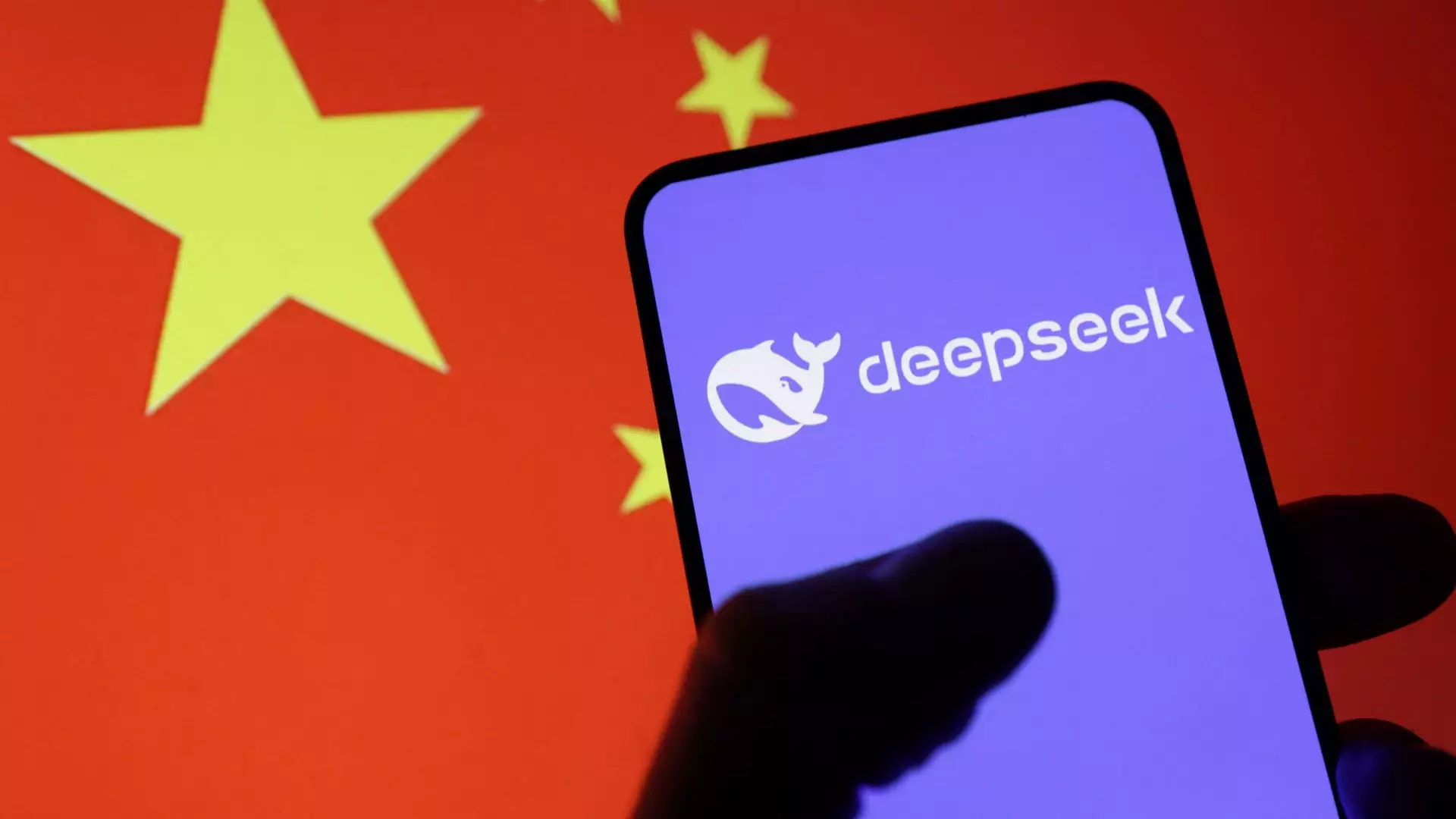In recent days, the tech industry has been abuzz with discussions surrounding China’s emerging AI company, DeepSeek. This unexpected competitor has rapidly transitioned from virtual obscurity to becoming a significant force in the artificial intelligence realm. A series of notable comments from prominent tech CEOs—Satya Nadella of Microsoft, Sam Altman from OpenAI, Tim Cook of Apple, and Alex Karp of Palantir—illustrate the high-stakes nature of this development. Their reactions highlight the evolving landscape of AI, where innovation, competition, and geopolitical tension converge.
Satya Nadella emphasized the remarkable benefits of DeepSeek’s innovations during a recent Microsoft earnings call. He indicated that the pioneering features presented by DeepSeek could potentially reshape existing paradigms within the tech sector. Furthermore, Nadella pointed out the role of DeepSeek’s R1 model which purportedly outperforms competitors like OpenAI’s O1 at a fraction of the cost, estimated at only $6 million to develop. This stark contrast in expenditure has raised eyebrows, particularly as industry analysts suggested that genuine costs could exceed $500 million, sparking debate over the viability and sustainability of such advancements.
In parallel, Sam Altman, the CEO of OpenAI, acknowledged the growing importance of this new model. He described it as “clearly a great model” and highlighted a fundamental concern echoed by others in the industry: the urgency for U.S. tech to remain competitive. This sentiment found further reflection in Tim Cook’s comments, which suggested that innovation that drives efficiency aligns with Apple’s strategic goals. This provided reassurance to investors who may have been anxious about potential margins being squeezed due to fierce competition.
As tech earnings season kicked off, the timing of DeepSeek’s rise could not have been more consequential. When viewed against the backdrop of President Donald Trump’s renewed emphasis on American progress in AI, the stakes seem higher than ever. Trump’s announcement of the Stargate initiative—which seeks collaboration between major U.S. tech firms like OpenAI, Oracle, and SoftBank—presents a monumental effort to bolster domestic AI infrastructure.
The geopolitical dimension inherent in the race for AI dominance is palpable. It reflects a broader concern among tech executives regarding China’s rapid advancements in high-tech sectors. Alex Karp of Palantir remarked on the importance of a coordinated effort among nations, indicative of the belief that technological progress should remain a collaborative endeavor, rather than a race constrained by competitive boundaries.
In essence, the ramifications of DeepSeek’s rise extend beyond mere technological competition; they encapsulate national interests that intertwine economic growth, security, and technological independence.
The impact of DeepSeek’s success rippled through financial markets, evidenced by a dramatic drop in the share values of established chip producers Nvidia and Broadcom. Collectively, these companies saw a staggering loss of $800 billion in market capitalization, prompting investors to reevaluate how they perceive the competitive landscape of AI development. The urgency of these shifts indicates that the stakes are not only technological but also economic.
Tech behemoths such as Meta have voiced their cautious perspectives. While they remain committed to heavy investments in AI infrastructure—promising an infusion of between $60 billion and $65 billion by 2025—there is a palpable air of uncertainty regarding the long-term implications of DeepSeek’s advancements. Mark Zuckerberg articulated a nuanced view, suggesting the need for a comprehensive understanding of the situation before declaring its potential to reshape the industry’s trajectory.
As leaders grapple with the broader implications of DeepSeek’s innovations, they express mixed feelings about the landscape ahead. Nadella’s comments, reflecting on the commoditization of AI as a discernible trajectory, indicate a potential paradigm shift where the benefits of advanced models become more widely accessible to businesses, ultimately benefiting consumers.
Reid Hoffman, co-founder of Inflection AI and an early investor in OpenAI, suggested that although there is increased urgency among U.S. competitors, there is no reason to panic. He emphasizes that the race for AI should not be a source of alarm but rather a catalyst for growth and collaboration within the sector. The dialogue surrounding DeepSeek serves as a wake-up call, urging American companies to adapt swiftly and strategically while preserving their innovation-centric ethos.
The emergence of DeepSeek not only highlights the rapid advancements in AI but also underscores the imperative for continuous innovation and adaptability among established tech giants. As American firms reassess their strategies in response to this new competitor, the dynamics of the AI landscape will only become more complex. The collective sentiment resonates with the notion that innovation and agility are essential components for success in a technology-driven future. As the industry steers through this volatile period, the convergence of competition, collaboration, and geopolitics will invariably shape the pathways forward.

